Dynamic Duos
Skin in the Game, Satchel’s and Grizzly Peak, Gordon Lightfoot, Dick Groat and Mike Shannon, Fledgling Firefighters
Welcome to my weekly newsletter. This issue features two greats (author and singer), a pair of Ann Arbor restaurants, a couple of former St. Louis infielders who were stars in two sports, and a firetruck driving duo. I hope you enjoy the picks and pics.
Fave Five 31: Dynamic Duos. Antifragile Author (Skin in the Game), Ante-Ark in Ann Arbor (Satchel’s BBQ and Grizzly Peak Brewing Company), Canadian Chanteur (Gordon Lightfoot), Cardinal Crushers (Dick Groat and Mike Shannon), and Fledgling Firefighters.
I was saddened by the news of three recent deaths of music and sports stars: Gordon Lightfoot, Dick Groat, and Mike Shannon. Having recently turned 70, I can expect to receive a steady stream of similar news regarding heroes of my youth, but it still stings each time.
To fit this week’s theme, I coupled the great author and aphorist Nassim Nicholas Taleb with the great singer and songwriter Gordon Lightfoot. The other sections feature two restaurants in Ann Arbor, two teammates on the 1964 World Series Champion St. Louis Cardinals who were both two-star athletes, and my two Maryland grandchildren.
Today is my sister Joan’s 73rd birthday. We have many great memories as a brother/sister duo, the middle two of four siblings. Joan and I share a love of four of the subjects of Fave Five: books, food, music, and humor. Joan always asks what I am reading and recommends books to me. She was a major musical influence through her collection of folk and rock LPs. We have had many memorable meals together. She introduced me to Monty Python’s Flying Circus and went with me to see my first Marx Brothers movie in St. Louis.
I am a much bigger sports fan, but during the brief existence of the Spirits of St. Louis basketball team in the ABA, for whom I kept stats, Joan became of an ardent fan of guard Mike Barr, number 34. We both also cherish spending time with our families and friends and connecting people in communities. Happy Birthday, Joan!
Book Best Bet
Skin in the Game: Hidden Asymmetries in Daily Life by Nassim Nicholas Taleb
My friend Bill Sterling (co-author of Boomernomics) recommended Fooled by Randomness: The Hidden Role of Chance in Life and in the Markets and I related immediately to Taleb’s ideas and writing style. My friend Larry Prusak sent me a copy of The Black Swan: The Impact of the Highly Improbable and he and I both wrote about it. I recommended all five books of Incerto including The Bed of Procrustes: Philosophical and Practical Aphorisms (the only one of the five I haven’t yet read) and Antifragile: Things That Gain from Disorder (which I also recommended in an article).
This book is just as insightful and well-written as his previous ones. I feel that Taleb is a kindred spirit, and I especially love the many aphorisms he includes. I have tried to apply some of his principles, particularly “via negativa (acting by removing) is more powerful and less error-prone than via positiva, (acting by addition).” Here are 20 more quotes and aphorisms I selected from the book:
Bureaucracy is a construction by which a person is conveniently separated from the consequences of his or her actions.
Silver Rule: Do not treat others the way you would not like them to treat you.
Avoid taking advice from someone who gives advice for a living, unless there is a penalty for their advice.
What is rational is what allows the collective—entities meant to live for a long time—to survive.
Intellectualism is the belief that one can separate an action from the results of such action, that one can separate theory from practice, and that one can always fix a complex system by hierarchical approaches, that is, in a top-down manner.
Scientism is a naïve interpretation of science as complication rather than science as a process and a skeptical enterprise. Using mathematics when it’s not needed is not science, but scientism.
Those who talk should do and only those who do should talk.
If you do not take risks for your opinion, you are nothing.
What matters isn’t what a person has or doesn’t have; it is what he or she is afraid of losing.
It is downright unethical to use public office for enrichment.
Use laws that are old. Read old books. Keep old friends.
Academia has a tendency, when unchecked (through lack of skin in the game), to evolve into a ritualistic self-referential publishing game.
Things work 1) if those who have been doing the doing took some type of risk, and 2) their work manages to cross generations.
In any type of activity or business divorced from the direct filter of skin in the game, the great majority of people know the jargon, play the part, and are intimate with the cosmetic details, but are clueless about the subject.
I would have preferred a juicy hamburger in a lively place for a twentieth of the price of the complicated experiments of a chef judged only by some Michelin bureaucrat.
The great Karl Popper often started a discussion with an unerring representation of his opponent’s positions, often exhaustive, before proceeding to systematically dismantle them.
It is immoral to claim virtue without living with its direct consequences.
How much you truly “believe” in something can be manifested only through what you are willing to risk for it.
Rationality is avoidance of systemic ruin.
Nothing without skin in the game.
From Amazon: A bold work from the author of The Black Swan that challenges many of our long-held beliefs about risk and reward, politics and religion, finance and personal responsibility.
In his most provocative and practical book yet, one of the foremost thinkers of our time redefines what it means to understand the world, succeed in a profession, contribute to a fair and just society, detect nonsense, and influence others. Citing examples ranging from Hammurabi to Seneca, Antaeus the Giant to Donald Trump, Nassim Nicholas Taleb shows how the willingness to accept one’s own risks is an essential attribute of heroes, saints, and flourishing people in all walks of life.
As always both accessible and iconoclastic, Taleb challenges long-held beliefs about the values of those who spearhead military interventions, make financial investments, and propagate religious faiths. Among his insights:
For social justice, focus on symmetry and risk sharing. You cannot make profits and transfer the risks to others, as bankers and large corporations do. You cannot get rich without owning your own risk and paying for your own losses. Forcing skin in the game corrects this asymmetry better than thousands of laws and regulations.
Ethical rules aren’t universal. You’re part of a group larger than you, but it’s still smaller than humanity in general.
Minorities, not majorities, run the world. The world is not run by consensus but by stubborn minorities imposing their tastes and ethics on others.
You can be an intellectual yet still be an idiot. “Educated philistines” have been wrong on everything from Stalinism to Iraq to low-carb diets.
Beware of complicated solutions (that someone was paid to find). A simple barbell can build muscle better than expensive new machines.
True religion is commitment, not just faith. How much you believe in something is manifested only by what you’re willing to risk for it.
The phrase “skin in the game” is one we have often heard but rarely stopped to truly dissect. It is the backbone of risk management, but it’s also an astonishingly rich worldview that, as Taleb shows in this book, applies to all aspects of our lives. As Taleb says, “The symmetry of skin in the game is a simple rule that’s necessary for fairness and justice, and the ultimate BS-buster,” and “Never trust anyone who doesn’t have skin in the game. Without it, fools and crooks will benefit, and their mistakes will never come back to haunt them.”
From Wikipedia: Nassim Nicholas Taleb (born September 12, 1960 in Amioun, Lebanon) is a Lebanese-American essayist, mathematical statistician, former option trader, risk analyst, and aphorist whose work concerns problems of randomness, probability, and uncertainty. The Sunday Times called his 2007 book The Black Swan one of the 12 most influential books since World War II.
Taleb is the author of the Incerto, a five-volume philosophical essay on uncertainty published between 2001 and 2018 (of which the best-known books are The Black Swan and Antifragile). He has been a professor at several universities, serving as a Distinguished Professor of Risk Engineering at the New York University Tandon School of Engineering since September 2008. He has been co-editor-in-chief of the academic journal Risk and Decision Analysis since September 2014. He has also been a practitioner of mathematical finance, a hedge fund manager, and a derivatives trader, and is currently listed as a scientific adviser at Universa Investments.
Taleb criticized the risk management methods used by the finance industry and warned about financial crises, subsequently profiting from the late-2000s financial crisis. He advocates what he calls a "black swan robust" society, meaning a society that can withstand difficult-to-predict events. He proposes what he has termed "antifragility" in systems; that is, an ability to benefit and grow from a certain class of random events, errors, and volatility, as well as "convex tinkering" as a method of scientific discovery, by which he means that decentralized experimentation outperforms directed research.
Restaurant Recommendations
I have returned to seeing live music more frequently at The Ark in Ann Arbor. On two recent visits, I dined with friends before the shows at local eateries.
Satchel's BBQ 3035 Washtenaw Ave, Ann Arbor, MI 48104
For a short time, Satchel’s had a second location near The Ark in downtown. That closed during the pandemic, but the original spot is still doing well. Their barbecue is excellent.
I had a two-meat plate of pulled pork, pulled chicken, collard greens, and vinegar slaw. The meat was nicely smoked and tender, the three sauces I tried were all tasty, and the sides were great. The vinegar sauce nicely complemented the greens, and I loved the vinegar slaw, which I wish were more widely available. I much prefer it to mayo-based slaw.
From the restaurant: Satchel’s BBQ offers delicious, authentic southern-inspired cooking that evokes opinions, stories and memories. We treat customers, business partners, and each other with courtesy and civility. We say “ma’am” and “sir” and “please” and of course, “thank you!”
Grizzly Peak Brewing Company 120 W Washington St, Ann Arbor, MI 48104
I made a reservation for our party of six, but it wasn’t necessary, as there were few people dining there at 6 p.m. on a Thursday. I ordered the buttermilk fried chicken handheld: buttermilk marinated chicken breast, lettuce, hot sauce, house-made pickles, aioli, toasted challah roll, served with potato chips. I liked it a lot.
From the restaurant: Grizzly Peak Brewing Company started serving Ann Arbor craft beer in August of 1995. Grizzly Peak is housed in a century-old building that has become a landmark in downtown Ann Arbor. The recipient of many awards over the past years, Grizzly Peak Brewing Company is one of a kind, and was recently referred to by the Ann Arbor News as “a legend in its own time.”
Marvelous Musician
Gordon died on May 1. I liked "If You Could Read My Mind" in 1970 and all of his hits that followed. After hearing him sing "Alberta Bound" at the 1988 Calgary Winter Olympics, I bought Don Quixote on cassette, and subsequently discovered his earlier music. I love "For Lovin' Me", "Early Morning Rain", "Ribbon of Darkness" "I'm Not Sayin'", "Canadian Railroad Trilogy", "Did She Mention My Name?", and "Song for a Winter's Night."
From Wikipedia: Gordon Meredith Lightfoot Jr. CC OOnt (born November 17, 1938 in Orillia, Ontario; died May 1, 2023 in Toronto) was a Canadian singer-songwriter and guitarist who achieved international success in folk, folk-rock, and country music. He is credited with helping to define the folk-pop sound of the 1960s and 1970s. He has been referred to as Canada's greatest songwriter and his songs have been recorded by some of the world's most renowned musical artists. Lightfoot's biographer Nicholas Jennings said, "His name is synonymous with timeless songs about trains and shipwrecks, rivers and highways, lovers and loneliness. His music defined the folk-pop sound of the 1960s and 1970s. He is unquestionably Canada's greatest songwriter."
Lightfoot's songs, including "For Lovin' Me", "Early Morning Rain", "Steel Rail Blues", "Ribbon of Darkness"—a number one hit on the U.S. country chart with Marty Robbins's cover in 1965—and "Black Day in July", about the 1967 Detroit riot, brought him wide recognition in the 1960s. Canadian chart success with his own recordings began in 1962 with the No. 3 hit "(Remember Me) I'm the One", followed by recognition and charting abroad in the 1970s. He topped the US Hot 100 or Adult Contemporary (AC) chart with the hits "If You Could Read My Mind" (1970), "Sundown" (1974); "Carefree Highway" (1974), "Rainy Day People" (1975), and "The Wreck of the Edmund Fitzgerald" (1976), and had many other hits that appeared in the top 40.
Several of Lightfoot's albums achieved gold and multi-platinum status internationally. His songs have been recorded by many notable artists. The Guess Who recorded a song called "Lightfoot" on their 1968 album Wheatfield Soul; the lyrics contain many Lightfoot song titles.
Robbie Robertson of the Band described Lightfoot as "a national treasure". Bob Dylan, also a Lightfoot fan, called him one of his favorite songwriters and said, "I can't think of any Gordon Lightfoot song I don't like. Every time I hear a song of his, it's like I wish it would last forever.... Lightfoot became a mentor for a long time. I think he probably still is to this day". Lightfoot was a featured musical performer at the opening ceremonies of the 1988 Winter Olympic Games in Calgary, Alberta and has received numerous honors and awards.
Early Morning Rain
Ribbon of Darkness
For Lovin Me/Did She Mention My Name
SCTV: Gordon Lightfoot Sings Every Song Ever Written
My Playlist
Sports Stars
Two former St. Louis Cardinals teammates, who won the 1964 World Seies together, died recently. Dick Groat, the All-Star shortstop, died on April 27, and Mike Shannon, who played right field in 1964 and switched to third base in 1967, died on April 29. They each were part of one other World Series champion team: Groat with the 1960 Pittsburgh Pirates and Shannon with the 1967 St. Louis Cardinals.
Both were outstanding two-sport athletes. Groat played basketball in college for Duke and in the NBA for the Fort Wayne Pistons. Shannon played football at CBC High School in St. Louis and at the University of Missouri (for one year).
Dick Groat
I saw my first MLB games in 1963, Groat’s first year with the Cardinals, at the old Busch Stadium (née Sportsman’s Park) in St. Louis. I remember that the entire Cardinals infield started in the All-Star Game that year:
The 1963 Cardinals infield established an all-star standard that went unmatched for 53 years. For the first time in major-league history, the National League’s All-Star Game starting infield was composed of players from the same team. They were the Cardinals unit of first baseman Bill White, second baseman Julian Javier, shortstop Dick Groat and third baseman Ken Boyer. The Giants’ Al Dark, who managed the 1963 National League all-star team, told The Sporting News, “When you’ve got an infield that starts with Bill White at first base and runs through Julian Javier, Dick Groat and Ken Boyer, you’ve got power and class.”
Stats
From Wikipedia: Richard Morrow Groat (born November 4, 1930 in Wilkinsburg, Pennsylvania; died April 27, 2023 in Pittsburgh) was an American professional baseball and basketball player who was an eight-time All-Star shortstop and two-time World Series champion in Major League Baseball. He rates as one of the most accomplished two-sport athletes in American sports history, a college All-America in baseball and basketball as well as one of only 13 to play both at the professional level.
Groat was the National League Most Valuable Player with the world champion Pittsburgh Pirates in 1960, when he won the batting title with a .325 average. He finished his career with a .286 batting average and 2,138 hits with four National League teams in 14 seasons. For seven seasons from 1956 to 1962, Groat teamed with future Hall of Fame second baseman Bill Mazeroski to give the Pirates one of the most efficient keystone combinations in baseball history. He ranked ninth in major league history in games played at shortstop (1,877) and fourth in double plays.
Groat attended Duke University, where he was a two-time All-America, two-time McKelvin Award winner as the Southern Conference athlete of the year and the first basketball player to have his number (10) retired in school history.
In 2011, Groat was inducted into the National College Baseball Hall of Fame, becoming the first person to be admitted to the college basketball and baseball halls of fame.
In November 1962, Groat was dealt to the St. Louis Cardinals in exchange for pitcher Don Cardwell, a 15-game winner the previous season. Groat was deeply hurt by the trade, having hoped to become a Pirates coach and possibly manager after his retirement as a player. He subsequently severed ties with the organization until a 1990 reunion of the 1960 World Series team.
Fully intent to prove that General Manager Joe Brown had made an egregious mistake, Groat responded with a vengeance in the 1963 campaign. In his best season in the big leagues, he set career marks in RBI (73), hits (201), doubles (43), triples (11), on-base percentage (.377), and slugging percentage (.450) to finish second to Los Angeles Dodgers pitcher Sandy Koufax in the NL Most Valuable Player vote. His .319 batting average ranked fourth in the league, seven points behind the leader Tommy Davis (Dodgers).
While Groat produced a career-high 73 RBI in his Cardinals debut, manager Johnny Keane became convinced that he could be even more valuable as a run-producer. The veteran batted either third, fifth or sixth in the order on a regular basis in the 1964 season, when he drove in 70 runs. He hit .292, played consistent defense, and continued to mentor younger teammates in a leadership role, as the Cardinals captured their first NL pennant in 18 years. He earned the final All-Star selection of his career and led the league in assists and double plays once again.
In the fourth game of the 1964 World Series, Groat was involved in one of the turning points in the series. The Cardinals trailed 3–0 in the sixth inning and were on the verge of a 3–1 deficit in the series. With two runners on base, he hit a ground ball to second baseman Bobby Richardson, who fumbled a relay toss near the bag to load the bases. Ken Boyer followed with a grand slam home run that held up for a 4–3 victory. Three innings earlier, Groat tagged out Mickey Mantle on a pickoff play that thwarted a two-on, two-out threat.
Groat reached base on a fielder's choice groundout and scored on Tim McCarver's three-run homer in the 10th inning of Game 5, which saw the Cardinals score a 5–2 victory. He had an RBI groundout in the 7–5 win in the Game 7 clincher.
Basketball and Baseball Highlights
Mike Shannon
I admired Shannon for moving from right field to third base to make room for Roger Maris in 1967. I got to see him play for the Cardinals in 1963, but he retired in 1970, the year I returned to St. Louis, so I missed his best years. I was never a fan of his announcing, especially when he was paired with the inept Jay Randolph (Indeed, indeed, Mike Shannon).
Mike Shannon Impersonation by comedian Craig Hawksley from the 1982 baseball writers dinner broadcast
From Wikipedia: Thomas Michael Shannon (born July 15, 1939 in St. Louis; died April 29, 2023 in Marion, Missouri) was an American professional baseball third baseman and right fielder. He played in Major League Baseball (MLB) for the St. Louis Cardinals from 1962 to 1970, and then worked as a Cardinals radio broadcaster from 1972 to 2021.
Shannon was raised in St. Louis, Missouri, and was an integral part of some of the Cards’ most successful seasons. He was a part of the 1964 World Series and 1967 World Series champions.
Shannon attended grade school at Epiphany of Our Lord Catholic School and graduated from Christian Brothers College High School in 1957. He was the Missouri High School Player of the Year in both football and basketball his senior year and remains the only athlete to win both awards in the same year.
Shannon attended the University of Missouri and played college baseball for the Missouri Tigers before leaving in 1958 to begin his professional baseball career after signing with Bing Devine, general manager of the St. Louis Cardinals. Shannon, who believed himself to be a better football player, has said that if football players were paid better during his era, he probably would have stayed at Missouri and sought a professional football career. His former coach Frank Broyles said that had he stayed in school, Shannon might have won the Heisman Trophy.
In Game 3 of the 1967 World Series against the Boston Red Sox, Shannon hit a home run off Gary Bell. In Game 7 of the 1968 World Series against the Detroit Tigers, Shannon's solo home run off Mickey Lolich was the Cardinals' only run off Lolich as the Tigers clinched. Shannon also hit the last home run in Sportsman's Park in 1966 and the first one for the Cardinals in Busch Memorial Stadium. In 1970, he contracted nephritis, a kidney disease, which ended his playing career.
Counting his tenure in the minor leagues, Shannon spent 64 years—nearly his entire adult life—with the Cardinals in some capacity. He also called Cardinals games longer than anyone, 50 years.
He developed distinctive calls. “Ole Abner has done it again” credited Abner Doubleday, often said as a team’s best hitters came up to bat with the game on the line.
When a runner was on base and a ball was hit between outfielders, Shannon pronounced it “a peck of trouble.” His signature home run call, spoken as a fly ball sailed toward the outfield fence, was “Get up, baby! Get up!”
When there were no words, there was the chuckle. “He can save any situation with that little cackle that he had,” the “heh heh heh,” Joe Buck wrote. “When he does it, it just makes you smile.”
Remarks that went off track became known as Shannonisms, and there were articles and websites devoted to them. They included:
“It’s Mother’s Day today, so to all the mothers out there, happy birthday.”
“It's raining so hard I thought it was going to stop.”
“The outfield is deep and playing him straight away and the infield is the same except first, second, third and short are playing him to pull.”
Remembering Mike Shannon
Picture Pun
Due to the labor shortage, the Silver Spring Fire Department had to lower its minimum age.





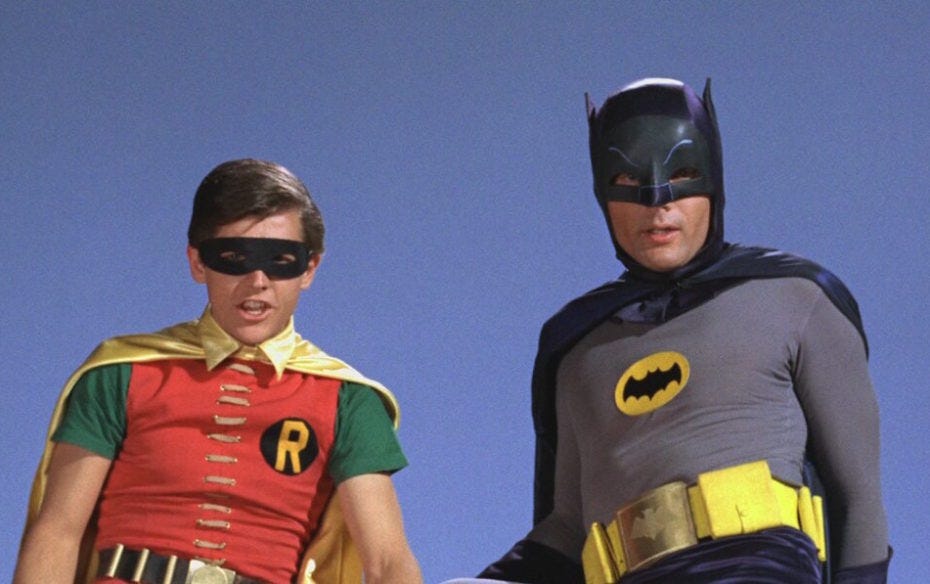
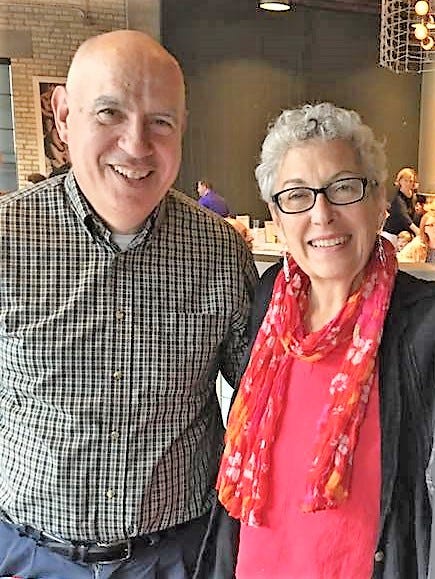

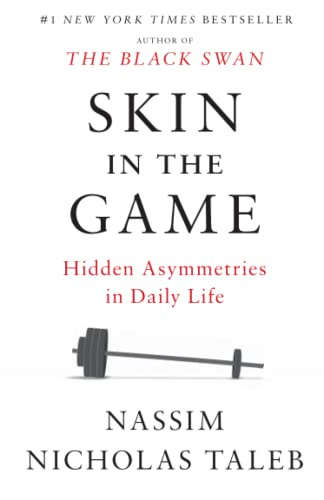


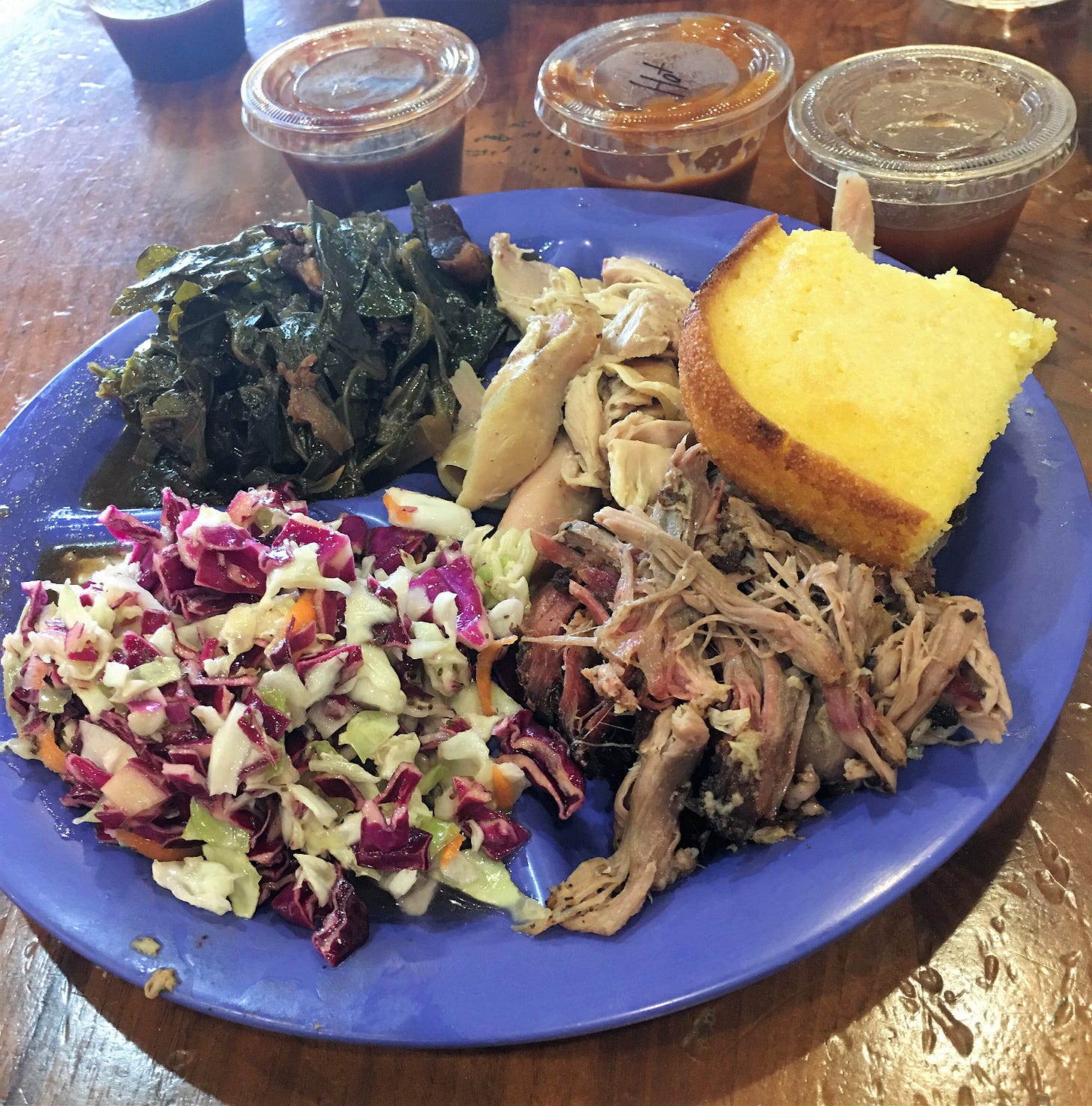



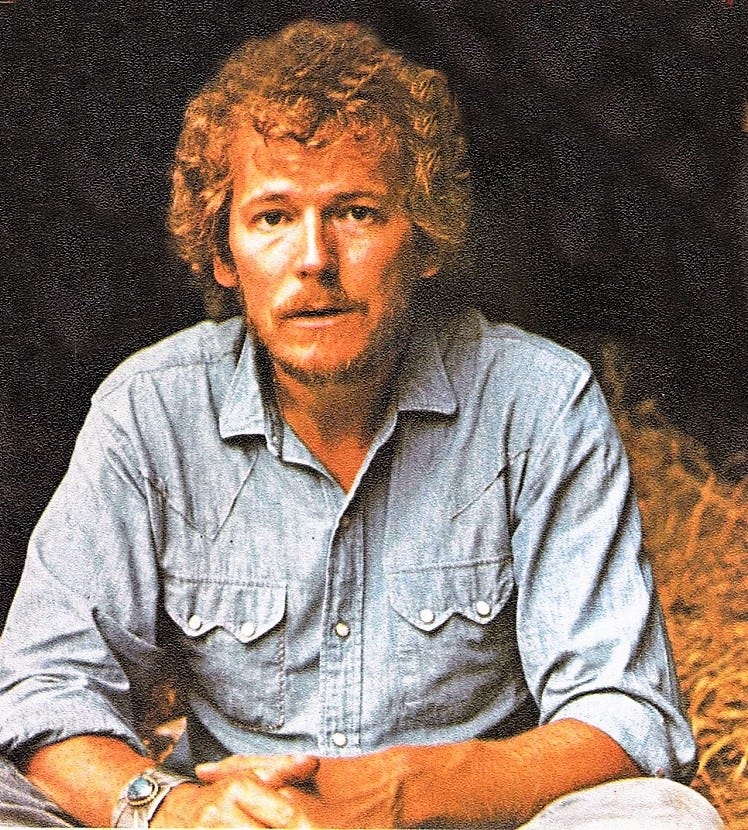
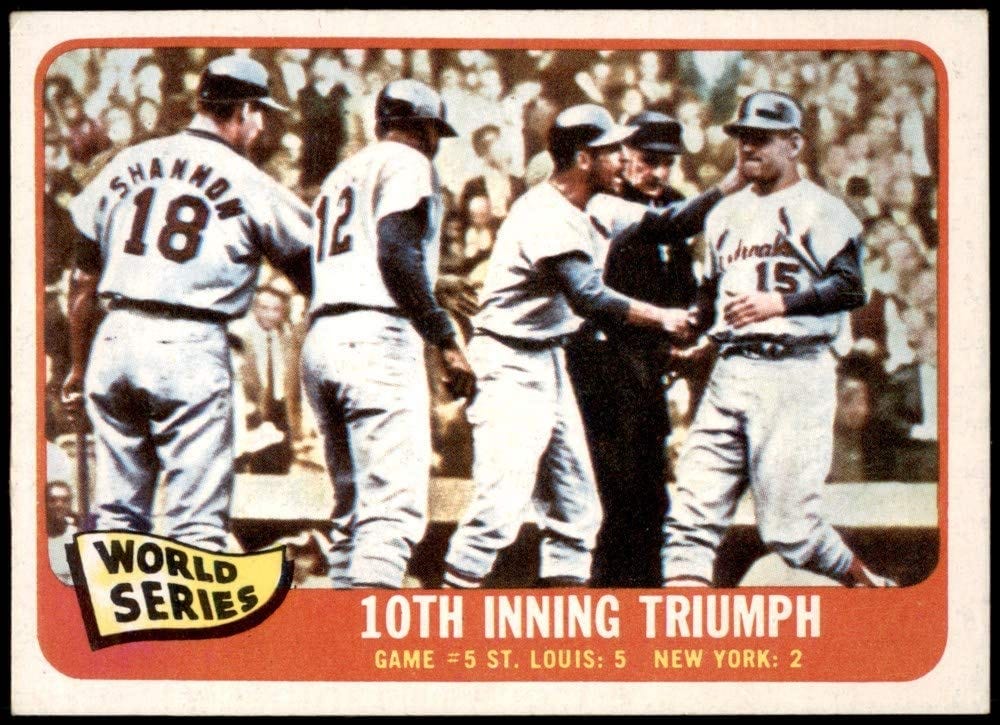
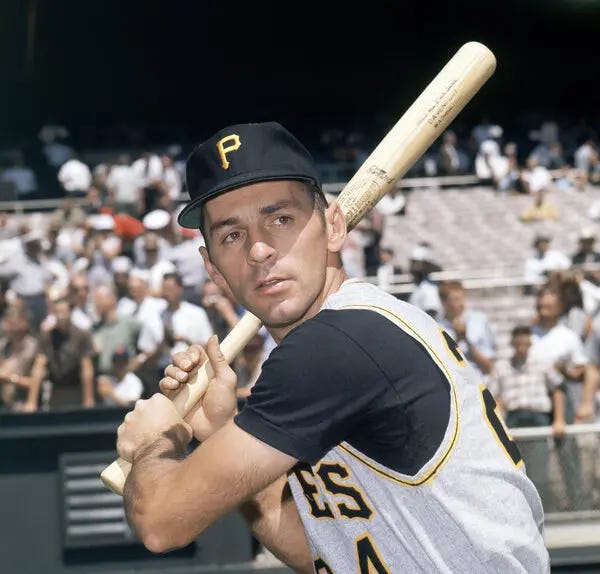
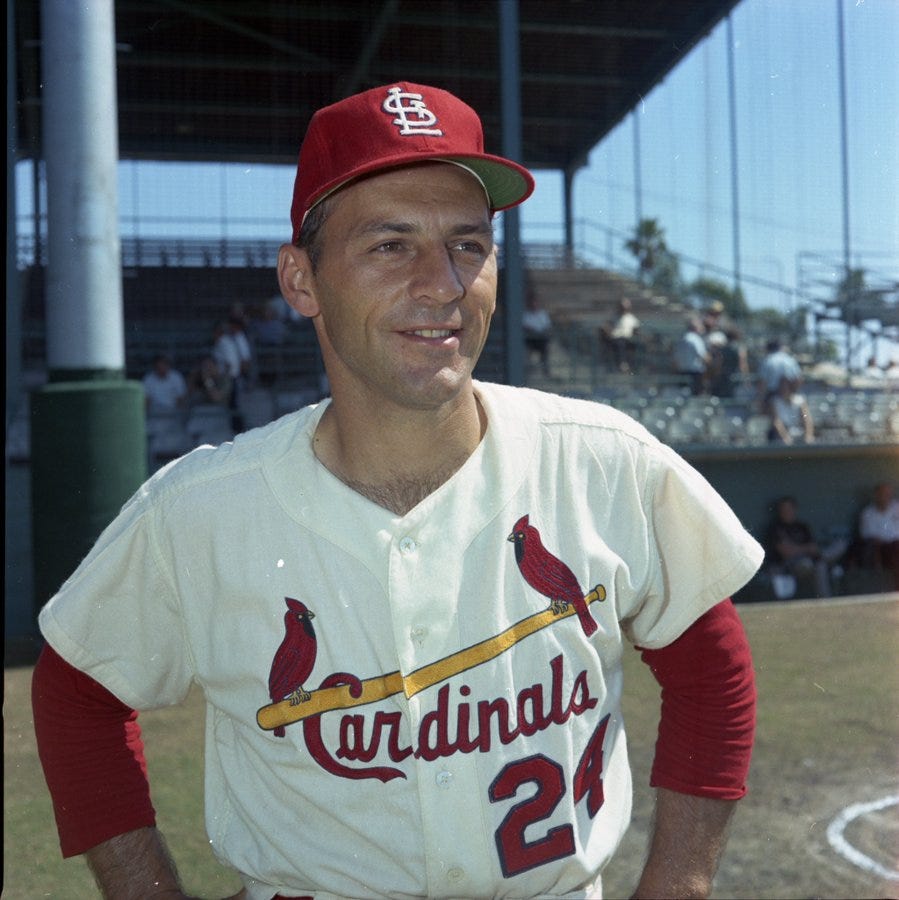
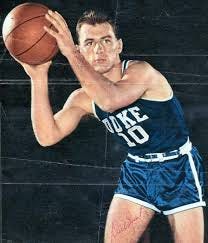
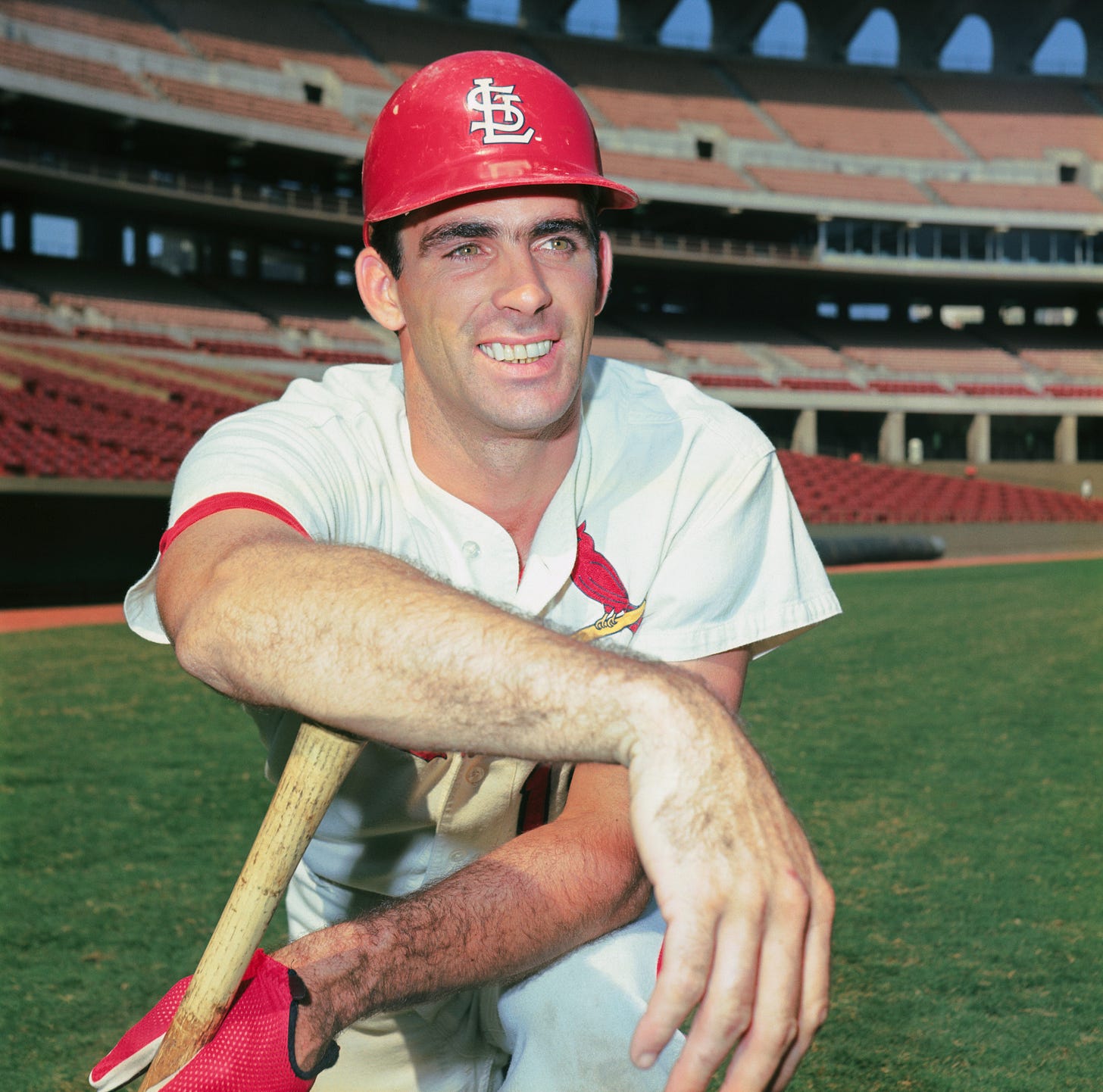

I once wrote that Nassim Taleb was disagreeable, meaning that he was low on the psychological trait known as agreeableness. He tweeted "Personality psychology is BS!!" I couldn't determine whether he was trying to refute my comments or prove them.